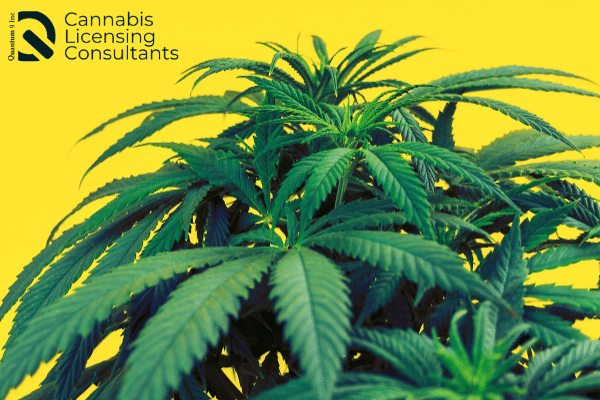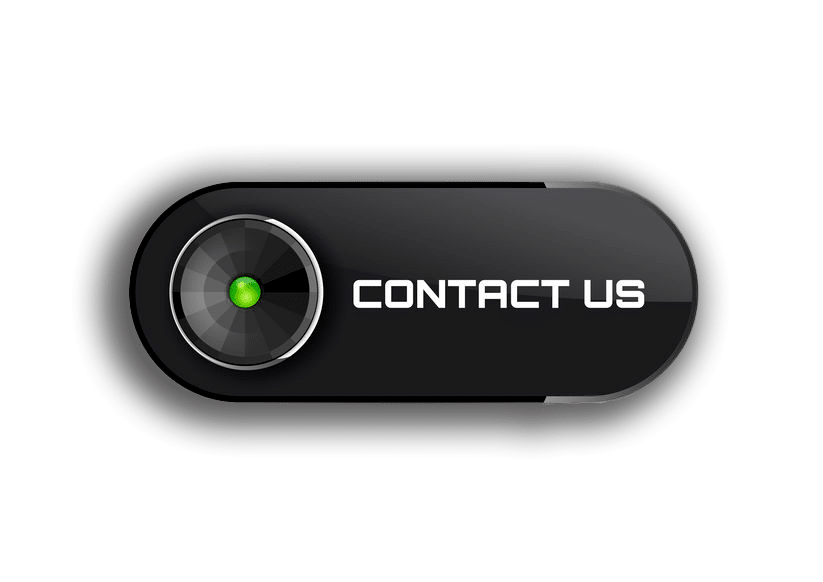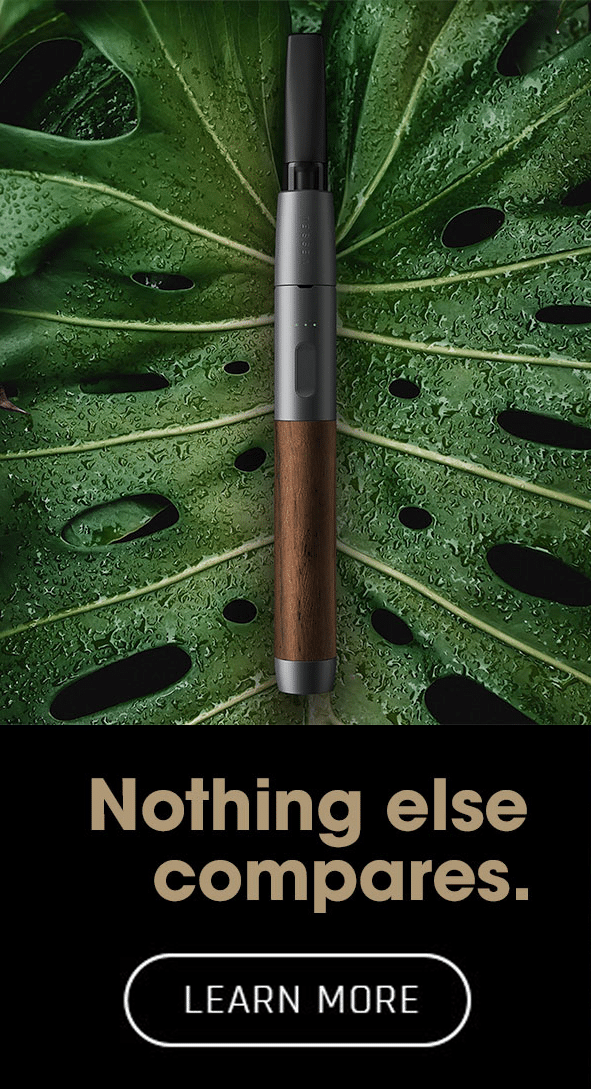Cannabis Consultant in Connecticut
Table of Contents
Updated October 2021 | Connecticut became the 19th US State to legalize adult-use cannabis! Industry experts predict that adult-use cannabis in Connecticut will generate $250 million in sales in its first full year and $725 million in its fourth year. Our cannabis consultants in Connecticut are prepared to help you win a cannabis license and start a cannabis business in Connecticut. In this article, we break down cannabis licenses in Connecticut and how to apply for an adult-use cannabis license in Connecticut. Additionally, our Connecticut cannabis consulting firm provides expert advice on how to increase your chances of getting a cannabis license in Connecticut by providing best practices and tips.
If you have an interest in starting a cannabis business in Connecticut, make sure to contact our cannabis consultants at Quantum 9.
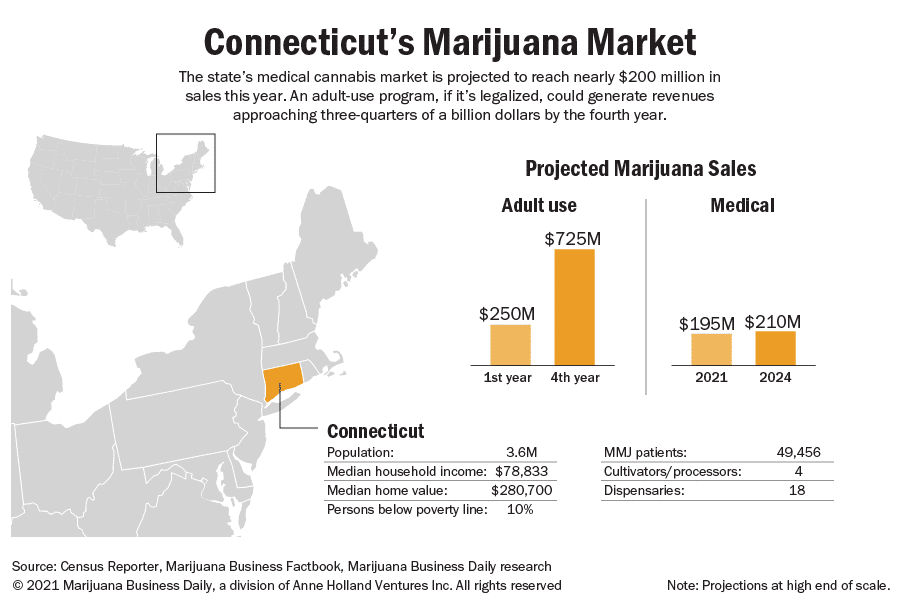
Overview of Adult-Use Marijuana Legalization in Connecticut
To begin, Senate Bill 1201 outlines the rules and regulations governing adult-use cannabis in Connecticut. Our Connecticut cannabis consultant suggests reading the bill as the first step for preparing to win a license.
The bill creates a framework for the cultivation, manufacture, sale, possession, use, and taxation of adult-use cannabis. Also, the adult-use marijuana bill prioritizes public health, public safety, and social justice.
For your convenience, our Connecticut Cannabis Consultants put together this outline of the bill to help you navigate it:
- Sections 2-14: Criminal justice and civil rights
- Sections 15-16: Social equity
- Sections 17–52: Licensing, product safety, and market structure
- Sections 53-67: Updating medical marijuana statutes
- Sections 68-69: Municipal role and authorities
- Sections 70-76: Indoor Clean Air Act and public consumption
- Sections 77-83: Prevention of consumption by minors
- Sections 84-87: Drug testing and employment
- Sections 88-97: Highway safety
- Sections 98-107: Taxes and revenues
More information on starting cannabis businesses in Connecticut will be coming soon from the Department of Consumer Protection, which is responsible for licensing the new businesses. Given the anticipated volume of cannabis license applications, the department will conduct periodic lotteries to determine which applications to consider first. These lotteries are expected to continue for at least the first few years of the market.
Half of the licenses will be reserved for social equity applicants, which are businesses that are 65 percent owned and controlled by individuals who lived for 5 of the last 10 years, or 9 of their first 18 years of life, in a disproportionately impacted area and have had an average household income of less than 300 percent of the state’s median household income over the last three years (see below for expanded definition).
Adult-use Cannabis Licensing Timeline in Connecticut
The first businesses to receive adult-use licenses in Connecticut are the currently operating medical cannabis license holders.
Therefore, beginning July 1, 2021, the department may accept applications from any dispensary facility to convert its license to a hybrid-retailer license and any medical marijuana producer for expanded authorization to engage in the adult-use cannabis market.
On the other hand, for new applicants, Connecticut plans to begin accepting licenses within 30 days after the Social Equity Council creates the final rules. The Social Equity Council in Connecticut is required to make recommendations not later than September 1, 2021.
With that being said, Connecticut may begin accepting licenses by October 2021. Given our experience submitting many adult-use cannabis licensee applications, Connecticut will likely need 3 – 9 to award applicants their licenses to begin operation.
Prior to the department accepting applications for each adult-use cannabis license in Connecticut, the department will determine the maximum number of applications for each license type.
Connecticut Adult-use License Application and Awarding Process
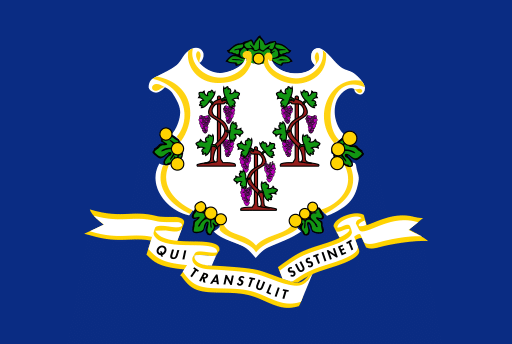
Now at this point, you may be wondering “How to apply for an adult-use cannabis business license in Connecticut?” In this section, our Connecticut Cannabis Consulting Firm provides a brief overview of the Adult-use License Application Process in Connecticut. Additionally, our cannabis consultants provide an overview of the adult-use license awarding process in Connecticut.
Process of Scoring Adult-Use License Applications in Connecticut
To begin, when applying for an Adult-use License in Connecticut, applicants must apply on a form prescribed by the Commission. The State will post on its website the first and last date that the department will accept adult-use cannabis license applications.
Our cannabis consultants in Connecticut put together the list below which is a summary of the cannabis license lottery process for applicants:
- The Department of Consumer Protection will announce the total number of applications to be selected and allocate 50 percent of them to a Social Equity Applicant lottery.
- An application period for each license type will be opened for a specific period of time, to be determined by the Department of Consumer Protection.
- A list of all applications received for each lottery will be randomized and sent to the third-party lottery operator.
- The third-party lottery operator will randomize the list of applications and identify the applications selected through the lottery.
- The applications will be reviewed and if an application is denied, the next application in the list will be accepted until the total number is selected or there are no additional applications remaining.
- The selected applicants will have to complete a provisional application and submit the appropriate fee.
- The provisional licensee has 14 months to obtain a fully operational license.
For more details, Connecticut’s Adult-use Cannabis License Application Process is further explained below.
Step 1: Lottery
Once received, the Social Equity Council will review each application to determine if it qualifies for Social Equity Applicant Status. Therefore, the Social Equity Council shall post requirements on or before September 1, 2021 on its Internet website to inform applicants of such requirements prior to the start of the application period.
The department will select 50% of the maximum number of Connecticut recreational cannabis license applications through a social equity lottery. Also, the department will award 50% of each license type to Social Equity Applicants.
If there are more applications than the maximum number, a third-party lottery operator shall conduct the lottery. The department will also conduct a separate lottery for the remaining 50% of applicants who do not qualify for Social Equity Status in Connecticut.
The lottery (whether done by the department or a third-party vendor) will identify applications for the department to review further.
If a social equity applicant is reviewed by the social equity council and it is found that the applicant does not qualify for social equity, the state will enter the applicant into the other lottery for general applicants.
Step 2: Confirming if the application is complete and qualifies
Afterward, the department will then verify that the lottery winners have submitted complete applications. The department will also determine if any of the owners or financial backers of the Connecticut adult-use cannabis license applicant have any disqualifying conditions (such as felonies, violating the license caps on ownership, etc.). If the applicant is denied, then the entire application for the Connecticut Adult-use cannabis business license is disqualified.
Our cannabis consultants in Connecticut recommend ensuring your investors and owners will not disqualify you. More specifically, ask your investors about their criminal background, disqualifying convictions, and any ownership they may have in other cannabis companies.
Step 3: Provisional License Application
All applicants selected in the lottery and not denied shall be provided a provisional license application, which shall be submitted in a form and manner prescribed by the commissioner. Luckily, applicants will have 60 days to complete their provisional license application in Connecticut. If the department determines your provisional license application is complete and meets their standards, they will award you a provisional license.
According to our Connecticut Cannabis License Consultants, the provisional license will expire within 14 months and you cannot renew it. Prior to receiving final license approval, a provisional licensee shall not possess, distribute, manufacture, sell or transfer cannabis.
Step 4: Final License Application
At this point, the provisional license holder can submit a final license application for the original license type they applied for. In order to do so, you will use a form provided by the department that will include information on:
- A contract with an electronic tracking system;
- Rights to occupy the proposed location;
- Local zoning approval;
- Labor peace agreement with a bona fide labor organization;
- Certification by the applicant that a project labor agreement will be entered into by the cannabis establishment prior to construction of the facility;
- Social Equity Plan approved by Social Equity Council;
- Workforce Development Plan approved by Social Equity Council;
- Written policies for preventing diversion, misuse, and sales of cannabis to underage persons; and
- Security requirements for the license type.
Finally, once the Final License is received, the cannabis establishment can begin operations.
We understand that applying for an adult-use cannabis business license in Connecticut can get confusing and time-consuming. Therefore, we encourage you to reach out and speak with one of our Connecticut cannabis consultants to learn how we can make winning a license a breeze for you.
Social Equity Applicants in Connecticut
The term “Social Equity” has been used frequently throughout this article. It’s time to define Social Equity in Connecticut, as each state has its own definition.
So what is a Social Equity Applicant in Connecticut?
A social equity applicant in Connecticut has to be at least 65 % owned by, or under the day-to-day control of individuals who:
- Had an average household income of less than 300% of the state median household income over the three tax years immediately preceding such individual’s application; AND
- Was a resident of a disproportionately impacted area for not less than five of the ten years immediately preceding the date of such application; OR
- Was a resident of a disproportionately impacted area for not less than nine years prior to attaining the age of 18.
Our Connecticut cannabis consultants want to emphasize that a “disproportionately impacted area” means a census tract in Connecticut that has a historical conviction rate for drug-related offenses greater than one-tenth, or an unemployment rate greater than 10%.
Below is a map showing the approved disproportionately impacted areas in Connecticut. The state published the Map on August 5, 2021.
You can plug in your address to the map above and it will let you know if it is located in a disproportionately impacted area.
Types of Adult-Use Cannabis Business Licenses in Connecticut
After you’ve read the bill, familiarized yourself with the application process and qualifying for social equity status, the next step is to decide on the type of cannabis license you want to apply for.
There are a variety of cannabis licenses in Connecticut, and our cannabis license experts in Connecticut can help you win each type. The types of adult-use Connecticut cannabis licenses include:
- Cultivators
- Micro-cultivators
- Retailers (aka dispensaries)
- Hybrid Retailers (Adult-Use & Medical)
- Product manufacturers
- Food and beverage manufacturers
- Product Packagers
- Transporters
- Delivery service
Connecticut offers some unique licensing opportunities. For example, cannabis licenses for delivery services, micro-cultivators, and food and beverage have lower barriers to entry. Additionally, this promotes equity in the market, which is a major priority for Connecticut.
Are you familiar with these various license types and what they allow you to do? Our cannabis license consultants in Connecticut provide you with a brief overview of each Adult-Use Cannabis Business License in Connecticut below.
Cultivator License
An adult-use cannabis cultivator license in Connecticut allows you to cultivate, grow, and propagate cannabis at your licensed facility. Additionally, an adult-use cannabis Cultivator Licensee in Connecticut can perform extractions and infuse products with cannabis, including food and beverages. A cultivator can also package and label their products at their facility.
As far as sales go, a cultivator can sell, transfer, or transport its cannabis using its employees or transporter to the following:
- dispensary facility;
- hybrid retailer;
- retailer;
- product manufacturer;
- food and beverage manufacturer;
- research program;
- laboratory; or
- product packager.
Importantly, a cultivator shall not sell, transfer or deliver to consumers, qualifying patients or caregivers, directly or through a delivery service.
Our Cannabis Consultant in Connecticut would like to point out that there is a size restriction for cultivator licenses in Connecticut. You must have more than 15,000 square feet of growing space to qualify for a Cultivator License (anything less is considered a micro-cultivator license, which we discuss below).
Micro-Cultivator License
Similarly, a Connecticut Cannabis Micro-Cultivator License allows you to conduct the same activities as a Cultivator License, but you CAN sell cannabis and products directly to consumers.
Also, a micro-cultivator differs from a cultivator in that the micro-cultivator is limited to a grow space between 2,000 – 10,000 square feet. Fortunately, the cannabis micro-cultivators in Connecticut can apply to expand their grow space in increments of 5,000 square feet per year. The micro-cultivator can apply for expansion annually until it reaches maximum marijuana grow space of 25,000 square feet.
As eluded to above, another MAJOR difference is that the micro-cultivator license allows you to sell and deliver cannabis directly to consumers (using its own employees or delivery services).
Retail License
An Adult-Use Cannabis Retail License in Connecticut is basically what you think of when someone says dispensary. More specifically, a Connecticut cannabis retail license allows you to:
- Obtain cannabis from a cultivator, micro-cultivator, producer, product packager, food and beverage manufacturer, product manufacturer or transporter or an undeliverable return from a delivery service;
- Sell, transport or transfer cannabis or cannabis products to a delivery service, laboratory, or research program; and
- Sell cannabis to a consumer or research program.
Conversely, an adult-use cannabis retailer in Connecticut may not:
- Conduct sales of medical marijuana products nor offer discounts or other inducements to qualifying patients or caregivers; and
- Not gift or transfer cannabis at no cost to a consumer as part of a commercial transaction.
Hybrid Retail License
Similar to the adult-use retail license in Connecticut, the Hybrid Retail license can conduct the same activities mentioned above for the Retailer License. However, in addition to conducting general retail sales, a hybrid retailer may sell cannabis and medical marijuana products, to qualifying patients and caregivers.
Our Cannabis Consultant in Connecticut would like to emphasize that any cannabis or medical marijuana products sold to qualifying patients and caregivers must be dispensed by a licensed pharmacist. Also, the Hybrid Retailer must have a private consultation space for the pharmacist to meet with patients.
Product Manufacturer License
An Adult-Use Cannabis Product Manufacturer License in Connecticut allows you to perform cannabis extractions, chemical synthesis, and all other manufacturing activities authorized by the commissioner and published on the department’s website. Additionally, the Product Manufacturing License allows you to:
- Package and label cannabis products manufactured at its facility; and
- Sell, transfer or transport its own products to a cannabis establishment, laboratory, or research program, provided such transportation is performed by utilizing its own employees or a transporter.
In contrast, the Product Manufacturer is prohibited from delivering any cannabis to a consumer directly or through a delivery service.
Food and Beverage Manufacturer License
The Food and Beverage Manufacturer License in Connecticut is similar to the “Infuser” license in Illinois. For instance, Connecticut’s Food and Beverage Manufacturer License allows you to:
- Incorporate cannabis into foods or beverages as an ingredient;
- Package or label any food or beverage prepared at its facility;
- Sell, transfer or transport its own products to a cannabis establishment, laboratory or research program, utilizing its employees or a transporter.
However, the adult-use cannabis Food and Beverage Manufacturer License does not allow you to:
- perform cannabis extractions;
- deliver any cannabis, cannabis products or food or beverage incorporating cannabis to a consumer, directly or through a delivery service.
Thus, our cannabis license application writers point out that Food and Beverage Manufacturer Licensees must obtain their starting cannabis material from marijuana Cultivators, Micro-cultivators, and Product Manufactures.
Product Packager License
Unique to Connecticut, the State will issue Adult-Use Cannabis Product Packager Licenses. Our Cannabis Consultants in Connecticut believe this is the first of its class.
The cannabis Product Packager License in Connecticut allows you to:
- Obtain cannabis from a producer, cultivator, micro-cultivator, food and beverage manufacturer, or a product manufacturer; and
- Sell, transfer or transport cannabis to any cannabis establishment, laboratory, or research program, provided the product packager only transports cannabis packaged at its licensed establishment and utilizing its own employees or a transporter.
Also, the Cannabis Product Packager must ensure cannabis products are labeled and packaged in compliance with the provisions of RERACA.
Transporter License
The Cannabis Transporter License in Connecticut allows a business to transport cannabis and cannabis products between cannabis establishments, research programs, and laboratories. However, according to our cannabis consulting firm in Connecticut, the Transporter Licensee is not allowed to possess or store cannabis for more than 24 hours.
On the other hand, a cannabis Transporter Licensee in Connecticut cannot deliver cannabis directly to consumers, patients, or caregivers.
Delivery License
Similar to the Transporter License, Connecticut will issue Cannabis Delivery Licenses that will allow businesses to:
- Deliver cannabis from a micro-cultivator, retailer, or hybrid retailer directly to a consumer; and
- Deliver cannabis and medical marijuana products from a hybrid retailer or dispensary facility directly to a qualifying patient, caregiver, or hospice, or other inpatient care facility.
On the other hand, the Delivery Licensee may not store or maintain control of cannabis or medical marijuana products for more than twenty-four hours. This includes the time between the point when a consumer, qualifying patient, caregiver or facility places an order, until the time that the cannabis or medical marijuana product is delivered to such consumer, qualifying patient, caregiver or facility.
At this point, our Cannabis Consultants in Connecticut have described the cannabis licensing process and the various types of cannabis licenses in Connecticut. We will now discuss fees that applicants can expect when applying for cannabis business licenses in Connecticut.
License and Applicant Fees for a Cannabis Business in Connecticut
The fees for cannabis licenses and applications vary based on what license type you apply for. In each case, you will have to pay three fees: Lottery fee, Provisional License Fee, and Final License Fee.
The license fees for different license types in the Adult Use Cannabis program are as follows:
| Non-Social Equity Fees | Social Equity Fees | |||||
| Name | Lottery | Provisional | License | Lottery | Provisional | License |
| Cultivator License | $ 1,000 | $ 25,000 | $ 75,000 | $ 500 | $ 12,500 | $ 37,500 |
| Micro-cultivator License | $ 250 | $ 500 | $ 1,000 | $ 125 | $ 250 | $ 500 |
| Retailer License | $ 500 | $ 5,000 | $ 25,000 | $ 250 | $ 2,500 | $ 12,500 |
| Product Manufacturer License | $ 750 | $ 5,000 | $ 25,000 | $ 375 | $ 2,500 | $ 12,500 |
| Food and Beverage License | $ 250 | $ 1,000 | $ 5,000 | $ 125 | $ 500 | $ 2,500 |
| Delivery/Transport License | $ 250 | $ 1,000 | $ 5,000 | $ 125 | $ 500 | $ 2,500 |
| Product Packager License | $ 500 | $ 5,000 | $ 25,000 | $ 500 | $ 2,500 | $ 12,500 |
| Hybrid License | $ 500 | $ 5,000 | $ 25,000 | $ 500 | $ 2,500 | $ 12,500 |
If you have any additional questions about license fees or raising capital for a marijuana business, make sure to click on the button below to talk to our expert cannabis consultants in Connecticut.
Additional information from our Cannabis Consultant in Connecticut
Ownership Limitations
Connecticut will have limitations on the number of licenses an applicant may hold.
More specifically, the department shall not award a cannabis establishment license to any lottery applicant who, at the time the lottery is conducted, has two or more licenses or includes a backer that has managerial control of, or is a backer of, two or more licensees in the same license type or category for which the applicant has entered the lottery.
For purposes of this section, the Connecticut dispensary facility, retailer, and hybrid retailer licenses shall be considered to be within the same license category. Similarly, the Connecticut cannabis producer, cultivator, and micro-cultivator licenses shall be considered to be within the same license category.
Change of Ownership in Adult-Use Cannabis Licenses and Business Establishments in Connecticut
Our Connecticut Cannabis Consultants want to emphasize this point. It’s important to understand regulations regarding the change of ownership in Connecticut cannabis licenses. In short, Social Equity Applicants cannot sell or change the ownership of their adult-use cannabis license for a period of 3 years following the issuance of their final license.
However, Social Equity Applicant can sell or change the ownership of their cannabis business license in Connecticut if:
- an owner died; or
- has a condition, including, but not limited to, a physical illness or loss of skill or deterioration due to the aging process, emotional disorder or mental illness that would interfere with the backer’s ability to operate.
Changes to Medical Marijuana Market in Connecticut
As for the medical marijuana market in Connecticut, rules and regulations have changed with the new adult-use program. For example, the possession limit for patients and caregivers increased to 5 ounces. Additionally, patients can purchase from any dispensary or hybrid retailer. Also, new conditions will be added to the medical program.
FAQs answered by our Cannabis Business Consultant in Connecticut
When will retail sales begin?
Our Cannabis Consulting firm’s research indicates that sales could begin in late 2022.
First, Connecticut needs to form the new Social Equity Council, which will set guidelines for adhering to the social equity provisions. The state will also need to hire new staff, issue new regulations, and oversee an application and licensing process for new cannabis businesses.
Further, those businesses need time to secure funding, physical locations, local zoning approval and all the other elements needed to start a new business in a highly regulated market. The supply chain must be entirely licensed before sales can begin, including stores, testing labs, and growers, and there must be enough growing capacity to supply the retail market.
What is the Social Equity Council in Connecticut?
A new Social Equity Council will oversee the verification of equity applicants, create new programs to support cannabis businesses and businesses in other industries, and manage the more general community investments derived from the cannabis tax revenue.
How will the law promote social equity?
Connecticut takes a comprehensive approach to promote social equity, focused on the neighborhoods most impacted by the War on Drugs. Connecticut provides for expungement of past cannabis-related crimes and reserves half of all cannabis business licenses for people from impacted neighborhoods. In addition, more than half of the revenue from cannabis sales will be dedicated to a new equity fund which will be invested in those neighborhoods.
How is which neighborhoods were most impacted by the War on Drugs determined?
The law looks at past drug convictions and current unemployment rates to determine which areas were disproportionately impacted by the War on Drugs (called “disproportionately impacted areas” or DIAs). Our Connecticut Cannabis Consultant wants to emphasize that the law requires the Social Equity Council to release a final list of qualifying census tracts by August 1.
What are census tracts?
The Census Bureau defines census tracts for each state. Census tracts are small areas with populations of about 4,000 individuals. In Connecticut, some census tracts cover an entire town, while some towns have many census tracts. Census tracts do not overlap, so each address in the state is only in one census tract.
Useful Resources related to Applying for Adult-use Cannabis Licenses in Connecticut:
- Link to the State’s Cannabis website
- Link to the governing body (Connecticut’s Department of Consumer Protection)
- Link to the bill legalizing adult-use cannabis in Connecticut
- Summary of the bill by MPP
- Link to our Connecticut Cannabis Consulting Team
Conclusions from our Cannabis Consultant in Connecticut
All in all, the adult-use cannabis market in Connecticut is bound with opportunities for entrepreneurs and investors alike. It is never too early to take a look at the application process. Talk to our cannabis consultants for more information about winning a license and starting a cannabis business in Connecticut.
Lastly, we have the highest success rate (90.12%) in the industry and are eager to help you win a cannabis business license. Take a look at our services here and feel free to reach out to speak with our Connecticut Cannabis Consultants:
Related Articles from our Cannabis License Consultants in Connecticut:

